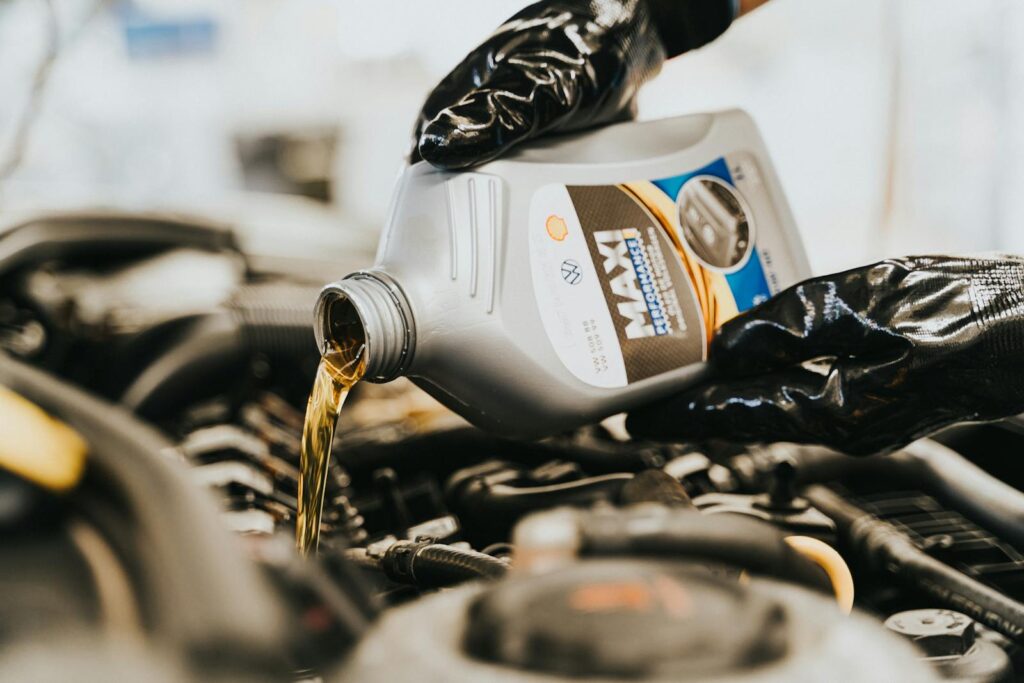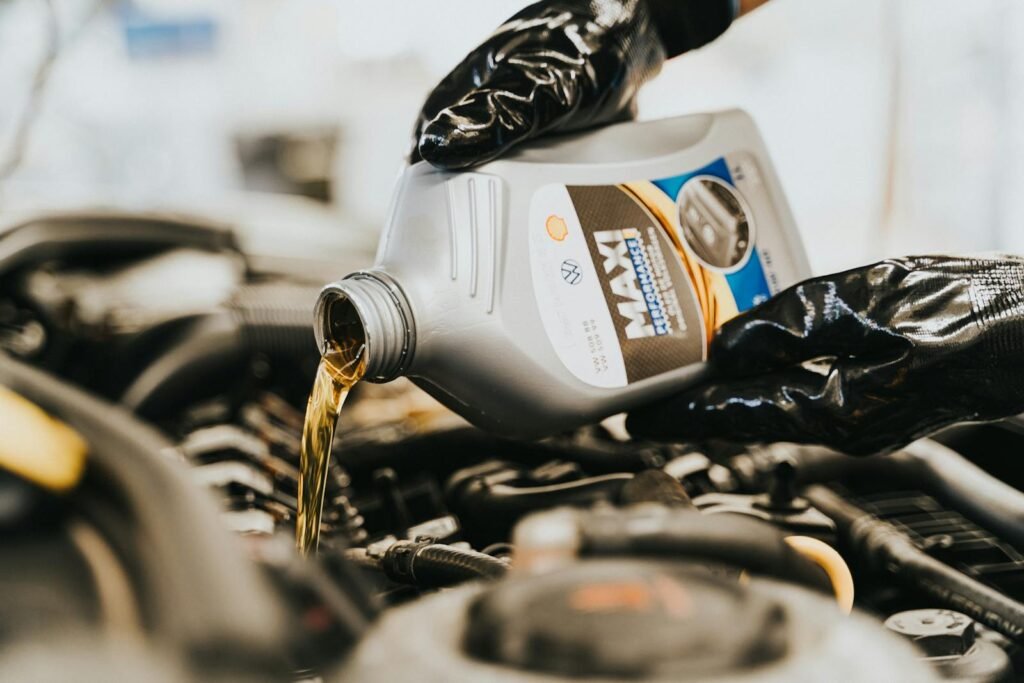When your car’s oil smells like gas, it indicates fuel contamination. This can lead to engine damage if not addressed promptly.
Gasoline mixing with engine oil is a serious issue that requires immediate attention. The smell of gas in your oil often means fuel is leaking into the crankcase. This can occur due to faulty fuel injectors, a malfunctioning carburetor, or worn piston rings.
Ignoring this problem can result in decreased lubrication, leading to increased engine wear and tear. Regularly checking your oil and addressing any unusual odors can prevent costly repairs. Always consult a professional mechanic to diagnose and fix the root cause. Timely maintenance ensures your vehicle runs smoothly and efficiently.
Causes Of Oil Smelling Like Gas
When your car’s oil smells like gas, it signals an underlying problem. Understanding the cause is crucial for resolving the issue and maintaining your car’s health. Below, we will explore the primary causes of this problem.
Fuel Injector Issues
One common cause is faulty fuel injectors. Fuel injectors deliver fuel into the engine. If they malfunction, they can leak fuel into the oil. This results in a gas smell in the oil.
- Stuck fuel injectors can overfill the combustion chamber.
- Leaking fuel injectors can lead to fuel mixing with oil.
Both scenarios contaminate the oil. This affects engine performance and can damage the engine.
Carburetor Problems
Older vehicles often have carburetors instead of fuel injectors. Carburetor problems can also cause oil to smell like gas.
- Choke issues can lead to an overly rich fuel mixture.
- Float problems can cause fuel overflow into the oil.
An over-rich mixture results in unburned fuel reaching the oil. This causes the oil to smell like gas.
| Issue | Impact |
|---|---|
| Fuel Injector Issues | Fuel leaks into oil, contaminating it. |
| Carburetor Problems | Over-rich fuel mixture leads to fuel in oil. |
Symptoms To Watch For
When your oil smells like gas, it signals potential issues. Identifying symptoms early can save your engine. Here are the key symptoms to watch for.
Unusual Odor
The first sign is an unusual odor coming from your oil. This smell is distinct and strong. It resembles the scent of gasoline. You may notice this when checking your oil levels.
If you detect this odor, it indicates gas is mixing with oil. This should not happen under normal conditions. Pay attention to this smell. It can be an early sign of serious engine problems.
Engine Performance
Another symptom is changes in engine performance. Your car might start to run poorly. The engine may misfire or stall. It may also lose power unexpectedly.
Check for these signs:
- Decreased acceleration
- Rough idling
- Poor fuel economy
If your car shows these signs, it could be due to gasoline in the oil. This mix can affect engine lubrication. Poor lubrication leads to increased wear and tear.
Monitor these symptoms closely. Address them early to avoid costly repairs.
Potential Risks
Discovering that your oil smells like gas in your car can be alarming. This issue can have serious consequences for your vehicle. Understanding the potential risks is crucial for maintaining your car’s health.
Engine Damage
Engine damage is one of the most severe risks. Gasoline mixed with oil can reduce the oil’s ability to lubricate engine parts. This lack of lubrication can lead to excessive wear and tear. In extreme cases, it may cause the engine to seize. A table below shows the common symptoms and potential outcomes:
| Symptoms | Potential Outcomes |
|---|---|
| Knocking noises | Worn-out bearings |
| Decreased performance | Damaged pistons |
| Overheating | Seized engine |
Reduced Fuel Efficiency
Reduced fuel efficiency is another risk. Gasoline in the oil can cause the engine to burn more fuel than necessary. This leads to increased trips to the gas station and higher fuel costs. Here are some signs of reduced fuel efficiency:
- Frequent refueling
- Poor acceleration
- Lower miles per gallon (MPG)
Keep an eye on your fuel consumption. If you notice a drop, have your car checked immediately.
Diagnosis Methods
When your car’s oil smells like gas, it can be a cause for concern. This issue could indicate a problem that needs immediate attention. Understanding the diagnosis methods can help identify the root cause. Here are two effective methods to diagnose this issue.
Oil Analysis
An oil analysis is a scientific way to determine oil contamination. It involves sending a sample of your car’s oil to a laboratory. The lab will test for various contaminants, including gasoline. This method provides precise information about the oil’s condition.
- Collect a small sample of oil.
- Send it to a certified lab.
- Wait for the test results.
- Analyze the data to find contaminants.
Oil analysis can detect even small amounts of gasoline. This method is very reliable. It helps to understand if gas is mixing with the oil. It also helps to find other potential issues.
Visual Inspection
A visual inspection is a quick and straightforward method. It does not require special tools or skills. Check the oil on the dipstick. Look for any unusual color or smell. Gasoline in the oil will often make it look thin and smell like fuel.
- Remove the oil dipstick.
- Inspect the oil’s color.
- Smell the oil for a gas scent.
- Check for any debris or particles.
If the oil looks thin or smells like gas, it confirms the issue. A visual inspection can give you a quick idea of the problem. You may need further tests to find the exact cause.
Preventive Measures
When your car’s oil smells like gas, it can be alarming. Preventing this issue is crucial for your car’s health. Implementing preventive measures can help you avoid costly repairs.
Regular Maintenance
Regular maintenance is vital for your car’s longevity. Schedule oil changes every 3,000 to 5,000 miles.
- Check the oil level frequently.
- Inspect the oil filter for clogs.
- Replace the oil filter when needed.
Use high-quality oil for better performance. Consult the owner’s manual for the recommended type.
Quality Fuel
Using quality fuel can make a big difference. Always buy fuel from reputable stations.
- Avoid low-quality or cheap fuel.
- Check the octane rating of the fuel.
- Use fuel additives if recommended.
Avoid overfilling the gas tank. This can prevent gas from mixing with the oil.
Repair Solutions
If your car’s oil smells like gas, it’s a sign of trouble. This odor suggests that fuel is mixing with the oil. Addressing this issue quickly is crucial to prevent engine damage. Here are some effective repair solutions to fix this problem.
Replacing Injectors
Faulty fuel injectors can cause gas to leak into the oil. Replacing them can resolve the issue. Follow these steps to replace fuel injectors:
- Turn off the engine and let it cool.
- Disconnect the battery for safety.
- Locate the fuel injectors in the engine bay.
- Remove the fuel rail and old injectors.
- Install new injectors and reattach the fuel rail.
- Reconnect the battery and start the engine.
Fixing Carburetor
In older cars, a faulty carburetor can cause fuel leaks. Fixing or adjusting the carburetor can solve the problem. Here’s how to fix a carburetor:
- Turn off the engine and let it cool.
- Remove the air filter to access the carburetor.
- Inspect the carburetor for visible damage or leaks.
- Replace damaged gaskets or seals.
- Adjust the fuel mixture settings.
- Reinstall the air filter and start the engine.
Following these repair solutions can help in maintaining your car’s health. Always ensure you use the right tools and follow safety guidelines. Regular maintenance checks can prevent such issues.
When To Seek Professional Help
If your car’s oil smells like gas, it can be worrying. Sometimes, the smell might not go away. In such cases, it’s vital to know when to seek professional help. Ignoring this issue can lead to severe engine damage. Below are key signs to watch for.
Persistent Odor
A persistent gas smell in your oil is a red flag. Gasoline in oil can thin the oil, making it less effective. This can lead to increased friction and wear on engine parts. If you can’t get rid of the smell after changing the oil, consult a mechanic.
Mechanics have tools to find the root cause. They can check for issues like a faulty fuel injector or a leaky fuel line. These are things you might not be able to fix yourself. If the smell is strong and constant, it’s time to visit a professional.
Recurring Issues
Have you noticed the gas smell coming back after fixing it once? This means there’s an underlying issue that needs expert attention. Recurring problems indicate that something in your car’s system is not functioning well.
Below is a table showing common recurring issues and possible solutions:
| Recurring Issue | Possible Solution |
|---|---|
| Gas Smell After Oil Change | Check for Fuel Injector Leaks |
| Oil Thinning Quickly | Inspect Fuel System |
| Engine Running Rough | Test Spark Plugs and Ignition Coils |
Recurring issues should never be ignored. They can lead to more significant problems down the road. A trained mechanic can perform detailed checks and repairs. This ensures your car runs smoothly and safely.
Cost Considerations
When your car’s oil smells like gas, understanding the costs is crucial. Repair costs and maintenance expenses play a big role. This section dives into these aspects to help you budget effectively.
Repair Costs
Repair costs can vary based on the cause of the issue. Common reasons include fuel injector problems or a faulty carburetor. Here’s a breakdown of potential costs:
| Issue | Estimated Cost |
|---|---|
| Fuel Injector Replacement | $200 – $500 |
| Carburetor Repair | $300 – $600 |
| Oil Change and Flush | $50 – $150 |
Fuel injector replacement is usually the most expensive. Carburetor repairs also add up quickly. An oil change and flush might seem minor, but it is essential.
Maintenance Expenses
Regular maintenance can prevent oil and gas mixing issues. Here are some typical maintenance tasks and their costs:
- Oil Changes: $30 – $70
- Fuel System Cleaners: $10 – $20
- Engine Tune-ups: $150 – $400
Oil changes every 3,000 to 5,000 miles prevent issues. Using fuel system cleaners keeps your fuel system in good condition. Regular engine tune-ups ensure everything runs smoothly.
Ignoring regular maintenance can lead to bigger problems. Addressing issues early can save money in the long run.
Frequently Asked Questions
Why Does My Oil Smell Like Gas In My Car?
Your oil might smell like gas due to a leaking fuel injector, frequent short trips, or a faulty fuel pressure regulator. This causes gas to mix with the oil, diluting it. Prompt inspection and repair are crucial.
Why Would Gas Be In My Oil?
Gas can mix with oil due to a faulty fuel injector, carburetor issues, or frequent short trips. This dilutes the oil, reducing its effectiveness and potentially damaging the engine. Regular maintenance can prevent this problem.
Will Gas In Oil Harm An Engine?
Yes, gas in oil can harm an engine. It reduces lubrication, causes wear, and may lead to engine failure. Regularly check and change oil to prevent damage.
What Does It Mean If My Engine Smells Like Gas?
Your engine smelling like gas could indicate a fuel leak, faulty fuel injector, or problem with the fuel pressure regulator. Check immediately.
Conclusion
Identifying the cause of gas-smelling oil is crucial for your car’s health. Regular maintenance prevents costly repairs. Always consult a professional mechanic if you notice unusual smells. Early detection saves you time and money. Keep your vehicle in top shape to ensure a smooth and safe driving experience.

